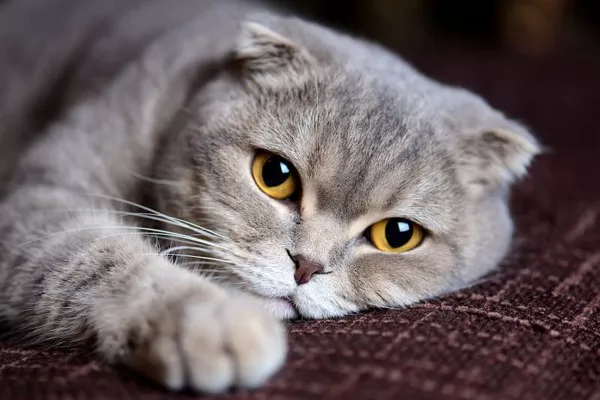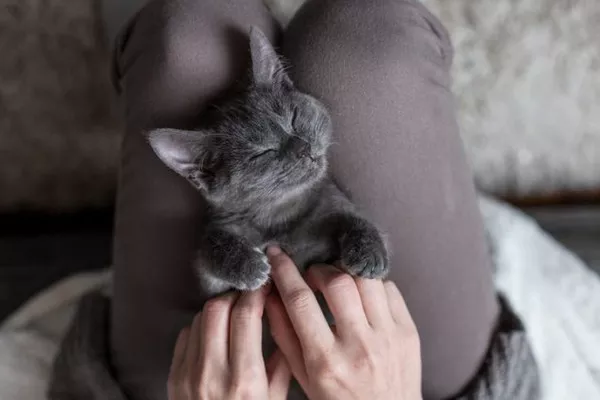British Shorthairs, with their round faces, dense coats, and sturdy build, are beloved feline companions known for their distinctive appearance. But beyond their charming looks, what is their temperament like? Are British Shorthairs friendly? In this article, we will delve into the personality traits of British Shorthairs and explore their friendliness towards humans and other pets.
1. The British Shorthair Breed
British Shorthairs are a well-established breed that originated in the United Kingdom. They have a long history and are known for their robust physique, dense coat, and round, expressive eyes. Originally bred for their hunting abilities to protect grain stores, British Shorthairs have evolved into sought-after companion pets known for their calm and independent nature.
2. Personality Traits of British Shorthairs
When it comes to their personality, British Shorthairs possess some unique traits that contribute to their overall disposition. Here are a few notable characteristics:
Calm and Reserved: British Shorthairs are generally known for their calm demeanor. They tend to be less demanding and are content with their own company. They are not as high-energy or overly active as some other breeds.
Independent Nature: British Shorthairs are quite independent and enjoy having their own space. They are not overly clingy or demanding of constant attention. This independent streak makes them well-suited for owners who value a more low-maintenance companion.
Gentle and Easygoing: British Shorthairs typically have a gentle and easygoing nature. They are known to be good with children and can tolerate handling and playtime. However, they may not be as inclined to actively seek out interaction as some more extroverted breeds.
3. Friendliness Towards Humans
When it comes to friendliness towards humans, British Shorthairs can vary in their individual personalities. While they may not be as outgoing or affectionate as some other breeds, they can still form strong bonds with their human family members. Some British Shorthairs may be more reserved and prefer observing their surroundings from a distance, while others may be more inclined to seek out gentle interactions.
British Shorthairs generally appreciate a calm and predictable environment. They may not be overly fond of sudden loud noises or chaotic situations. It’s important to provide them with a peaceful and stable home environment to help them feel secure and comfortable.
Despite their independent nature, British Shorthairs are known to be loyal to their owners. They may not constantly demand attention, but they often develop a deep bond with their chosen humans. They are known to be excellent companions for individuals or families who appreciate a more laid-back and undemanding pet.
4. Interaction with Other Pets
British Shorthairs are known to get along well with other pets, including dogs and other cats. Their calm and easygoing nature often helps them adapt to the presence of other animals in the household. Proper introductions and gradual socialization are essential when introducing a British Shorthair to new pets to ensure a smooth transition.
It’s important to note that each cat is an individual, and their level of compatibility with other pets may vary. Some British Shorthairs may prefer being the sole pet in the household, while others may form strong bonds with their furry counterparts. Early socialization and positive experiences can increase the likelihood of a British Shorthair accepting and even enjoying the company of other pets.
5. Factors Influencing Friendliness
Several factors can influence the friendliness of a British Shorthair or any cat breed for that matter. These include:
Early Socialization: Early socialization plays a vital role in shaping a cat’s temperament. Proper exposure to various people, environments, and positive experiences during their early weeks and months can contribute to a more sociable and friendly cat.
Individual Personality: Each cat, regardless of breed, has its own unique personality. Some British Shorthairs may be more outgoing and affectionate, while others may be more reserved. Understanding and respecting their individual temperament is crucial in building a positive relationship.
Upbringing and Environment: The upbringing and environment in which a British Shorthair is raised can also impact their friendliness. A nurturing and loving home, coupled with positive reinforcement and interaction, can foster a more sociable and friendly cat.
Conclusion
While British Shorthairs may not be the most outwardly affectionate or attention-seeking breed, they can still make wonderful companions. Their calm and independent nature, combined with their loyalty and gentle disposition, can create a rewarding bond with their owners.
As with any cat breed, individual personalities can vary, so it’s important to approach each British Shorthair as a unique individual. By providing them with a loving and stable home environment, early socialization, and understanding their independent nature, you can foster a positive and harmonious relationship with your British Shorthair companion.
Related Topics:

























